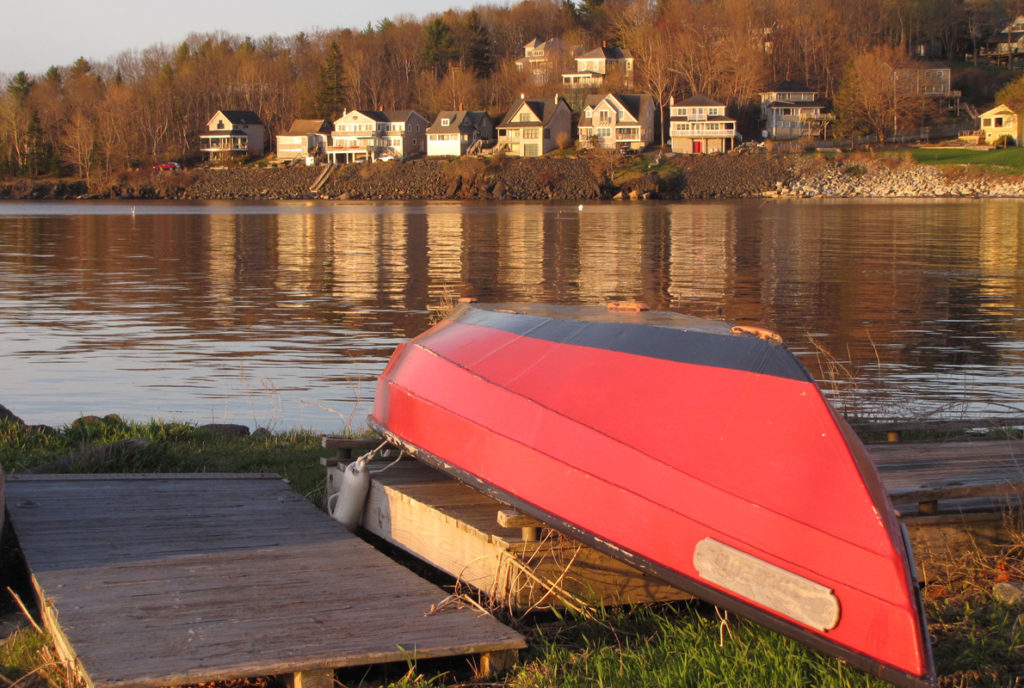By David Wylie
Down East magazine chose Rockland in 2018 as the best place to live in Maine. We have come a long way. From the plywood windows on Main Street of 25 years ago amid a stagnating fishing industry, Rockland has come into its own as a major tourist destination with two world-class museums, splendid galleries, high-end shops, go-to festivals, and some of the best restaurants in Maine.
Lobster boats, the Maine state ferry, commercial marine industries, majestic schooners, eye-catching pleasure boats, and small boutique cruise ships thrive on Rockland’s waterfront. Visitors are drawn to its rugged coastal charm, framed by a vibrant working waterfront.
Rockland’s economy continues to grow and new businesses open as the whole area benefits from these activities. Rockland has one of Maine’s highest concentration of manufacturing jobs and has become a regional economic and tourism hub.
Growth, popularity, and growing prosperity, however, can be a mixed blessing. This success invites over-use and thus threatens our waterfront, the nexus between the town and the harbor. Managing our waterfronts is key to preserving our communities.
While marine-based tourism contributes significant revenue, we, as stewards of the city, need to remain committed to make sure that tourism is moderated so as to preserve Rockland’s smart, healthy, and sustainable growth while not compromising its unique cultural heritage and pristine environment.
Rockland needs to be wary of the perils of over-tourism and plan accordingly. As witnessed in coastal communities across the globe, over-tourism is often driven by huge international profit-driven corporations with little concern about the long-term well-being of the coastal communities they frequent.
Not everyone agrees how best to avoid the perils of over-tourism while still benefiting from tourism’s economic and cultural contributions. These concerns are not unique to Maine. One only has to look to Charleston, S.C.; Key West; Ketchikan; Bermuda; Barcelona; Venice; and other coastal communities around the world to understand the urgency of proactively addressing this issue before it is too late.
Let’s be smart and learn from our international colleagues who gathered in 2002 in South Africa to suggest solutions to over-tourism and issued a “Declaration on Responsible Tourism.” This declaration offers guidance to communities to devise filters to minimize the negative economic, social, and environmental impact of mass-tourism. It suggests that those who embrace responsible tourism should contribute to the benefit of host communities’ economy, environment, and culture without impacting the success of local businesses. They must also act as responsible global citizens by following International Labor Standards and adhering to environmentally sound operating practices.
I believe Rockland and other Maine coastal communities would be wise to embrace these principles. Indeed, the entire state should adopt the brand of being the epicenter of responsible tourism, or “green tourism.”
Gov. Janet Mills and the new administration should direct the Maine Office of Tourism to refocus its efforts to promote this brand rather than catering to the unbridled whims of those corporate interests that threaten our coastal communities, waterfronts, and marine environments.
Gov. Mills’ inspirational slogan for the state, “Welcome Home!” should serve as a battle cry to preserve our working waterfronts, our quality of life, our beautiful state of Maine, our home.
David Wylie lives in Rockland and serves on the city’s Ad Hoc Harbor Management Committee, but his views do not necessarily reflect the position of the committee.





